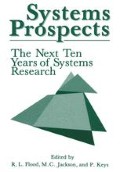Abstract
Historically, a constant feature of UK business has been change: change brought about by the need to improve productivity resultant upon competition from other business enterprises. Technological development has increased productivity and extended the work carried out by machines rather than people. These changes have profoundly affected people’s lives. We can see this in many industries: for example, old industries, such as coal mining, shipbuilding and the textile industry. Each of these industries shows a pattern of change which is repeated in newer industries which originate in the late twentieth century.
Access this chapter
Tax calculation will be finalised at checkout
Purchases are for personal use only
Preview
Unable to display preview. Download preview PDF.
References
Checkland, P. B., 1981, “Systems Thinking, Systems Practice”, Wiley, Chichester.
Cox, T., 1987, Stress, coping and problem-solving, Work and Stress, 1 (1): 5.
Kakabadze, A., and Parker, C., 1984, “Power, Politics and Organisations: a Behavioural Science View”, A. Kakabadze and C. Parker, eds., Wiley, Chichester.
Looney, V., 1986, “Methods, Tools and Environments”, unpublished presentation paper, School of Information Science, Portsmouth Polytechnic, Portsmouth.
Parker, L.D., 1984, Control in a organisational life: the contribution of Mary Parker Follet, Acad. Man. Rev., 9(4) : 736.
Pfeffer, J., 1981, “Power in Organisation”, Pitman, London.
Stowell, F. A., 1982, “The Introduction of New Technology in Education and its Effect upon a Publisher of Educational Books”, M.A. Dissertation, University of Lancaster.
Stowell, F. A., Allen, G. A., 1988, Co-operation, power and the impact of information systems, Sys. Prac., 1(2) : 181.
Thompson, J. B., 1983, “Critical Hermeneutics”, Cambridge University Press, New York.
Vickers, G., 1983, “The Art of Judgement”, Harper and Row, London.
Wilson, B., 1984, “Systems: Concepts, Methodology and Applications”, Wiley, Chichester.
Author information
Authors and Affiliations
Editor information
Editors and Affiliations
Rights and permissions
Copyright information
© 1989 Plenum Press, New York
About this chapter
Cite this chapter
Stowell, F.A. (1989). Organisational Power and the Metaphor Commodity. In: Flood, R.L., Jackson, M.C., Keys, P. (eds) Systems Prospects. Springer, Boston, MA. https://doi.org/10.1007/978-1-4613-0845-4_25
Download citation
DOI: https://doi.org/10.1007/978-1-4613-0845-4_25
Publisher Name: Springer, Boston, MA
Print ISBN: 978-1-4612-8111-5
Online ISBN: 978-1-4613-0845-4
eBook Packages: Springer Book Archive

